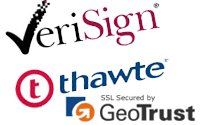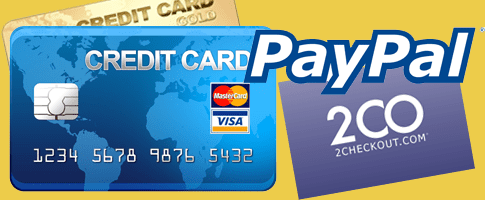Starting an E-Commerce Website in Trinidad & Tobago, Part 3
In Part One of this series I talked about the options available in Trinidad & Tobago (and everywhere else for that matter) for someone wanting to establish an online business. In Part Two I talked about the current problem as pertains to the absence of local payment processing in TT Dollars (which has been partially solved with the Electronic Transactions Bill 2011 which was passed by the T&T Senate) and the only option to continue to use US based payment processors in the foreseeable future.
Now in Part 3 I’ll discuss how to go about signing up and integrating their payment processor into their website to actually make some money (isn’t that what E-Commerce is about?!) and a few other factors to bear in mind. I’ll also touch on the other creative ways Trinis are using the E-Commerce model for our local market.
Okay, here goes: you have products to sell online, now what?
- Choose between a shopping cart service (ongoing fee) or ‘built for E-Commerce’ website (one time cost) [See Part 1]. Remember, building the website to showcase your products to sell is the easy part.
- Open your business bank account at a Trinidad & Tobago bank as the US based payment processor will need to link it to the account you create with them to deposit the sales proceeds from your online customers when they checkout.
- Sign up with a US based payment processor, popular ones in Trinidad being 2Checkout, Authorize.Net and the ubiquitous PayPal.
- Integrate the payment processing account info into the website so that upon checkout their service is activated (done by your webmaster).
- The processor collects the order payment in US Dollars, regardless if you display your prices in TT Dollars, keeps their processing fee (typically between 3%-5% of the order) then remits the balance to your bank account in Trinidad & Tobago.
- Even though you use a 3rd party processor you may still need to offer your customers some visible sense of security that their personal information is safe and your website is secure. This means the presence of a security certificate or SSL like VeriSign, GeoTrust and others.
Do you absolutely need an SSL certificate?
 The Secure Socket Layer (SSL) protocol was created to ensure secure transactions between web servers and browsers. The protocol uses a third party, a Certificate Authority (CA), to identify one end or both end of the transactions
The Secure Socket Layer (SSL) protocol was created to ensure secure transactions between web servers and browsers. The protocol uses a third party, a Certificate Authority (CA), to identify one end or both end of the transactions
As long as you’re using a payment processor, for example PayPal or 2Checkout (which you will be) your website will forward your customer straight to their site to enter their credit card information, so the short answer is no. Your website won’t be touching their credit card details so for this reason you won’t need an SSL Certificate.
However, this does not mean that don’t need one as protecting credit card information (via Data Encryption) is only one function of an SSL Certificate. The other is Authentication and Validation of the business and website which would assure your visitors that your site is secure and their personal information is safe with you. A customer may register on your site and not necessarily make a purchase so only offering security at the checkout stage may not be totally reassuring. But it doesn’t mean that your site poses a risk if they’re just browsing like on any other site.
So that’s Part 3. FYI, the keywords ‘e commerce in Trinidad’ and ‘e commerce in Trinidad & Tobago’ and other variations send a large number of visits daily to my site as both E-Commerce articles Part 1 and Part 2 rank in the first 2 pages of Google T&T. Then I also get many phone calls asking about it which means that Trinis recognize that there is money to be made online. To this I say NOT SO FAST with that perception. Please do not get too excited about the potential. Yes the potential is there but the sad truth is that the majority are not going to make money in my view and it’s not because they don’t have a good idea or good products. But that’s Part 4, sorry!



It’s an option worth evaluating so do your due diligence, sounds okay though.
lol sorry for my terrible spelling, I should really review them and make corrections!
Very good, well written/informative article. I’ve landed on your blog because i’ve spent all day researching payment processing solutions for Trinidad and Tobago merchants. Basically my dilemma is choosing the correct payment processing. Ideally i would love to have an Authorize.net merchant account but it appears to be only available for us based businesses. Paypal on the other hand offers worldwide support. (they say you can send, receive and withdraw money to a us bank account or visa card issued in trinidad and tobago).
This seems all great, but i’ve been reading alot of horror stories about paypal limiting accounts for various reasons, and one way of reducing the risk of getting “limited” is to “verify” your paypal acocunt, and to do so you must link it to a us bank account?
FINALLY TO MY QUESTION**
You mentioned in this post that you can “open up a local business bank account and link it to paypal” Is it really that straight forward? How you had any person experience in doing so? If it is… then this is GREAT news. As I am in the planning phase before launching an educational website, offering premium content to paid members, and resolving this issue mean i can now focus onn other aspects or the website. Thank you
Thank you for your comments. To answer your question:
“You mentioned in this post that you can “open up a local business bank account and link it to paypal” Is it really that straight forward? How you had any person experience in doing so?”.
I don’t see where I said this directly in the article but perhaps that’s the impression conveyed in my points 2 and 3 so let me clarify this. You can only ‘link’ a local bank account to sign up with Paypal via your local credit card and that’s the extent of the link. Now that you have a Paypal account you can receive money in your Paypal account but won’t be able to transfer it to your bank account for precisely the reason that they only verify US based bank accounts.
While you still have access to your funds it still isn’t a convenient and bona fide option for a regular business. I can say this as I personally have a local credit card (with RBC Royal Bank) and used it to sign up with Paypal. I’ve billed my US based clients by sending Paypal invoices and received payment without issue. Though I can’t withdraw the funds I use it to purchase website related items- templates, stock images etc. so it works for me.
To receive payments on your educational website you can do 2 things: open a US based bank account for Paypal so you can transfer funds from Paypal to your bank account, or use 2Checkout which supports transfer to a Trinidad based bank account. Case in point, one of my recent clients did the same and you can see it in action: TnT Bamboo Online. 2Checkout is also used by Trinidad Express for their online classifieds.
If you have anymore questions feel free to contact me via my contact page.
Sorry for quoting you incorrectly, I was only saying it in my own words. (i forgot what the purpose of a “quote” was) But in anycase… thanks alot for the tip. Really helpful 😉
So i’ve looking into 2CO, any buy the looks of it, its a horrible payment processor. 1 star reviews all over the internet, plus the company itself seems very amateur. So I still cant decide. I got an idea though, I’m currently in the UK planning to head back in next month…I was thinking maybe i can open up a bank account here, and use it to verify my paypal account, then just do my business banking online when im home (in T&T). What do you think?